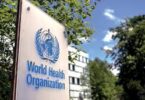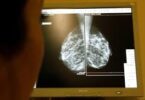KIGALI (AA) : Healthcare professionals urged for the availability of digital health technologies in the fight against cancer, aiming to enhance the likelihood of diagnosing, treating and potentially curing the disease.
During the first-ever E3 international cancer conference held in Kigali, the capital of Rwanda, experts emphasized the significance of accessing modern tools like artificial intelligence, endoscopic imaging and virtual reality, asserting their potential to advance early cancer detection and treatment.
Jacques Morescaux, the founder of IRCAD, a leading institute for minimally invasive surgery and endoscopy, called on developing nations to learn from other countries where medics use high-tech to address certain health issues, such as remote surgeries.
With such technologies, “it is estimated that the accuracy of early cancer detection is over 90%, far exceeding the ability of general doctors,” he said.
According to experts, investment in early detection, including screening, is critical to catch the disease at a mostly manageable stage.
The two-day conference, titled Bridging the Gap: Advancing Cancer Care, Research and Education in Africa. Beyond the post-COVID-19 era, cancer care, research and education in Africa were discussed.
Participants from around the world noted that addressing disparities, promoting collaboration and driving transformative changes are also crucial in tackling cancer.
There is “an urgent need to build bridges that connect us, transcend boundaries and lead us to a future where cancer is no longer a death sentence,” said John Koshy, the head of the organizing committee of the conference.
For Albert Tuyishime, the head of the disease prevention and control department at the Rwanda Biomedical Center, awareness and early detection efforts can increase the survival rate of cancer patients in Africa.
Tuyishime said that sensitizing people and primary healthcare providers about the risks and signs of cancer can go a long way in helping them take steps to reduce the risk factors of developing the disease.
In 2022, there were an estimated 20 million new cancer cases and 9.7 million cancer-related deaths worldwide, according to the World Health Organization (WHO).
Cancer is responsible for nearly one in six deaths in the African region, with the rising prevalence of the disease on the continent directly connected to the high incidence of key risk factors, such as tobacco use, physical inactivity and unhealthy diets.







